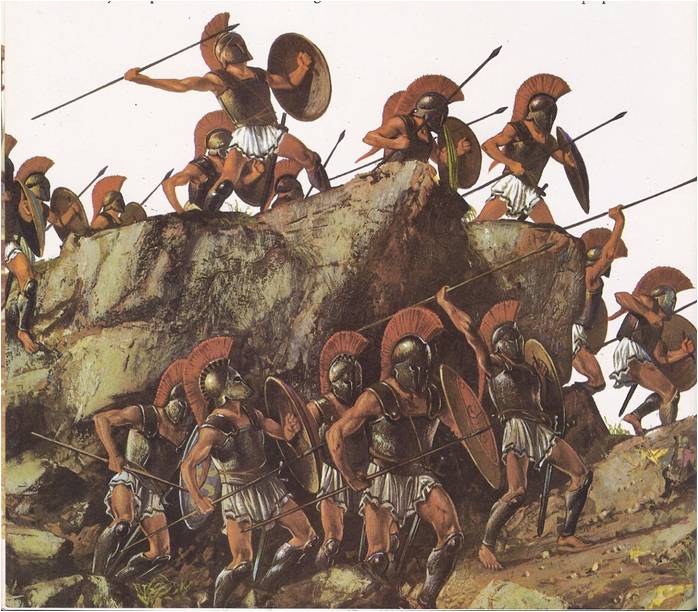In 343 B. C., the philosopher Aristotle left the quiet of his study and journeyed to Macedonia, a country in the mountain wilderness north of Greece. He had been hired to tutor the rowdy young son of a king. The boy, Alexander, was a yellow-haired thirteen-year-old. His manners were polite and he seemed to be clever enough, but he was wild. It was hard for him to pay attention to his studies. He much preferred galloping across the fields on his huge horse. He proudly told his new tutor that he had tamed the horse himself. When he did come to his lessons, instead of discussing arithmetic and Greek grammar, he chatted on about armies and his father’s campaigns and his own great plans to conquer the world. Alexander said he was a descendant of the family of Achilles – his mother had told him so. The Iliad, Achilles’ story, was the one book he loved. He carried it with him wherever he went and read it over and over until he knew it by heart. He dreamed of growing up to be a hero like the ones in Homer’s poem. He pestered Aristotle with questions about Greece and Athens, which he longed to visit. Aristotle said that it was very different from Macedonia. Philip of Macedon In those days Macedonia was just beginning to be a kingdom that civilized people talked about seriously. The Greeks still said it was a country of barbarians, but the Greeks called everyone who wasn’t Greek a barbarian. Macedonia was changing. Alexander’s father, King Philip, had spent his youth as a hostage in Greece and he had learned to love almost everything Greek. He had studied the language and tried to learn the ways of the people; but he had also heard the Greeks …
Read More »Greek Against Greek 430 B. C. – 404 B. C.
About 425 B. C., a lonely man, in a country that was not his own, sat down to write the story of a war that had begun six years before. Thucydides, an Athenian, had fought in the war’s first battles. He had been a general, in command of thousands of his city’s troops. Then he was ordered to go to the aid of another commander whose men were outnumbered. When he arrived, the battle had already been fought and lost. It was not his fault but the people of Athens were too anxious about the war to consider that. They stripped Thucydides of his command and forced him to leave his homeland. Now, while the war raged on, he could only watch and he was troubled by the things he saw. Athens and its rival Sparta were caught in a deadly struggle to see which would be the master of the Greek world. Men died, cities were destroyed and nothing was gained, but the war went on. Thucydides began to write about the senseless fighting, hoping that he might teach the men of another time to avoid war. He wrote about the ambassadors from the city of Corinth, who spoke to the Spartans in their assembly, warning them about Athens. “You have no idea what kind of people these Athenians are”, the Corinthians said, “how altogether different from you. They are always thinking up new schemes and they are quick to make plans and to do something about them; but you are happy with what you have and slow to do even what is necessary. The Athenians are bold and adventurous; you Spartans are cautious and afraid to trust your own strength. They love foreign adventure, which you hate, because they think there is something to win, while you think …
Read More »

